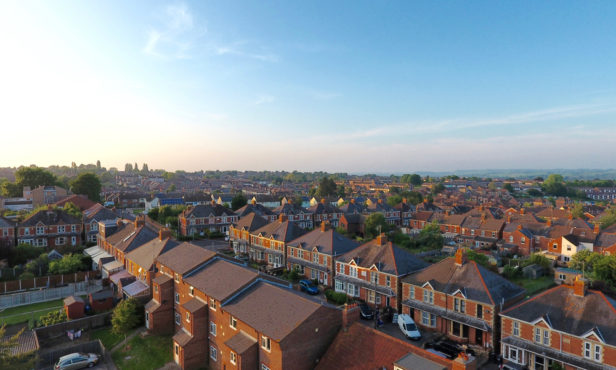Annual house price growth rose to 6.5% in November which is the highest rate since January 2015, according to Nationwide’s latest House Price Index.
On a monthly basis prices increased by 0.9%, after considering seasonal factors.
This is up on October, when house prices rose by 0.8%.

Halifax: Confidence in housing market declines
Overall the average house price stood at £229,721 in November, up from £227,826 seen the previous month.
Robert Gardner, chief economist at Nationwide, said: “Data suggests that the economic recovery had lost momentum even before the latest lockdown came into effect.
“Economic growth slowed sharply from 6.3% in the month of July to 2.2% in August and 1.1% in September, even though the economy was still around 8% smaller than its pre-pandemic level at that point.
“Rising infection rates and tighter social restrictions will have resulted in a further hit to growth in October and November.
“Labour market conditions also weakened with the unemployment rate rising to 4.8% in the three months to September – still low by historic standards, but up from an average of 3.8% in 2019.
“The extension of the furlough scheme to March 2021 will help limit job losses in the short term by enabling firms to retain more staff that they would have done otherwise.
“Despite these headwinds, housing market activity has remained robust.
“October saw property transactions rise to 105,600, the highest level since 2016, while mortgage approvals for house purchase in the same month were at their highest level since 2007 at c97,500.
“However, housing market activity is likely to slow in the coming quarters, perhaps sharply, if the labour market weakens as most analysts expect, especially once the stamp duty holiday expires at the end of March.”
Sam Mitchell, chief executive of Strike, said: “House prices defied the usual signs of a seasonal slowdown in November.
“It’s clear to see that, despite tougher lockdown restrictions, the stamp duty holiday is continuing to work its magic in helping Britain’s property market bounce back.
“Transaction rates are through the roof and news of a vaccine has further boosted the confidence of sellers and buyers alike – with no signs of activity slowing down before the end of the year.
“People will inevitably start to question how long this can all last.
“However, things aren’t just going to grind to a sudden halt with the stamp duty holiday ending.
“Demand for moving home is greater than ever and the government has already indicated that it will do whatever it takes to keep Britain moving in 2021 and beyond.”
Guy Harrington, chief executive of Glenhawk believes that the latest figures from Nationwide show a ‘mini boom’ in the housing market.
Harrington said: “The UK housing market is closing what has been a tumultuous year with a flourish.
“With over 100,000 property sales completed in October, the highest single month figure since 2016, and mortgage approvals at a 13-year high, consumers are yet again defying the economic headwinds.
“The stampede to complete transactions before the stamp duty holiday ends in April continues to fuel this artificial mini boom, even as we head for what some are predicting will the worst recession in 300 years.
“Extending the stamp duty holiday looks likely to be the only way to avoid a painful market slump, although this type of artificial government stimulus never ends well.”
Joshua Elash, director of property lender MT Finance, added: ’The Nationwide figures are as positive as they are fragile.
“They are a clear reflection of the positive impact of the stamp duty holiday implemented by the Chancellor, coupled with strong underlying demand for home ownership, and continued support by the mortgage sector. This good work must not be undone.
“The recently mooted changes to the capital gains tax treatment on property should be shelved, lest the Chancellor risk significantly reducing the supply of property coming to market.
“Equally, the stamp duty holiday should be extended in the new year to continue to encourage first-time buyers and more homeowners to transact.
“With unemployment figures expected to hit high single digits and the full impact of the recession yet to bite, there remains a very real risk of a serious dip in house prices without the continued support of the government.”

